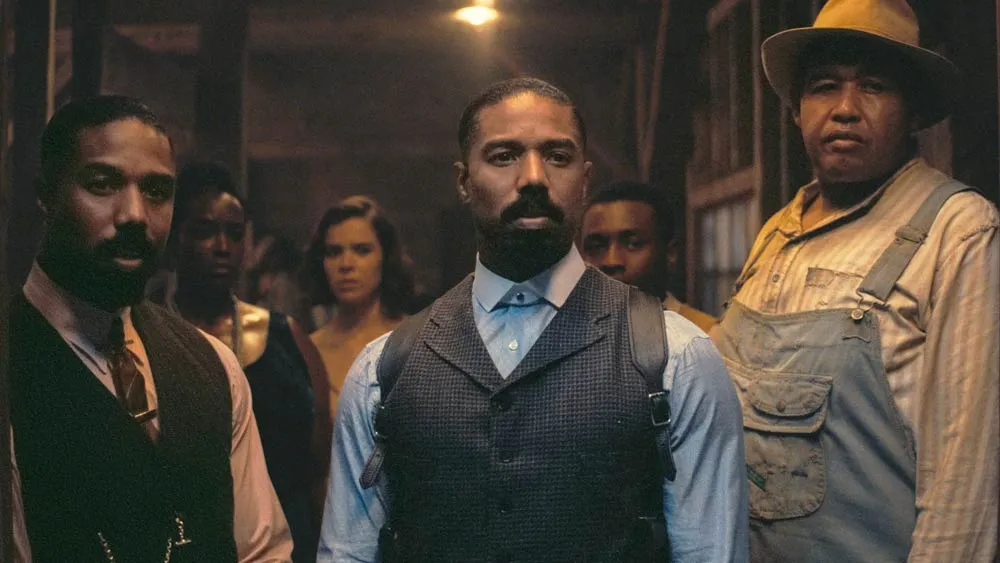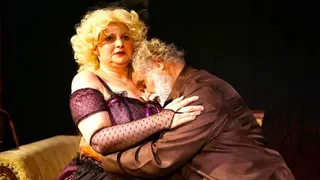November 28, 2013
Two from Ethan Mordden
Kilian Melloy READ TIME: 4 MIN.
If Mordden sounds to you like a place where a Hobbit might live, to me it's a place of riches. I'm talking Ethan Mordden, my favorite gay author. He's got two new books out, a cause for celebration. One, fiction; the other, fact.
The Passionate Attention of an Interesting Man (Magnus Books, paper, $15.95) is described as "A Novella and Four Stories." The compact volume is Mordden's first fiction in eight years. Don't think he's a slacker -- during that time he published at least five nonfiction titles: "All That Glittered," looking at the "legit," non-musical side of Broadway history; "Ziegfeld," a biography of Florenz Z.; "The Guest List," a very showbizzy study of Manhattan's reach into American culture; "Love Song," a pungent duo biography of Kurt Weill and Lotte Lenya; and the current "Anything Goes." If "Passionate Attention" is perhaps not Mordden's very best, these stories, which read like erotica but are really windows into the highs and lows of gay love, are still continually entertaining, stimulating, and emotionally rewarding. I don't know another writer who can circle around the gay heart with Mordden's sexy, droll hilarity, and then with quiet honesty shoot his arrow right through it. Mordden's constant bull's-eyes, so profound and sure, make you put down the book to bask in the splendor of the moment, as he once again illuminates the true nature and beauty of gay friendship.
Best news for fans of Mordden's five-volume "Buddies" series (and that should be everyone) is that "Passionate Attention" includes a new "Buddies" story. It's the collection's most overtly sexual tale, although not my favorite. That would be "Hopelessly Devoted to You," in which the comedy runs the highest and the course of true love the deepest (Mordden, an ardent proponent of gay punctuation, would have that as True Love; my editor foreswears my indulging it in the B.A.R., so I'm always delighted at Mordden's use). "Hopelessly Devoted" is the tale of a god-like porn star and a small-town Adonis, with a Greek chorus of local queens adding a general bitch's brew of commentary and punctuation. It shares a common theme with the other stories: the curiously intertwining dependency of sub/dom relationships: a hetero actor "researching" sodomy, a cop and an orphan, a black bodybuilder and a fearful nerd.
Mordden's new nonfiction book is "Anything Goes" (Oxford University Press, cloth, $29.95). Its subtitle will give you pause: "A History of American Musical Theatre." Wait, didn't Mordden already write that? What about Mordden's very first book, the 1976 "Better Foot Forward," or the much heralded, variously titled seven-volume history that covered the same ground decade by decade?
Okay. Mordden owns this territory. He launched his career as the music director of multiple shows, was a student of the BMI Musical Theatre Workshop, and was both composer and lyricist of musicals; he knows what it takes to write these things, and has an insider's knowledge of their construction. But his thesis, and the form with which he expresses it, hasn't changed. So what's up with this re-do? Unlike lucky Sam Wasson, whose "Fosse" was allowed 600 pages by its publisher, Mordden has been ruthlessly held to the Oxford Press' 250-page stricture. That partially explains his highly condensed style; his sentences are packed. So, I found quickly and with great relief, the new book greatly expands on what's come before. In the first five pages I learned six new things (fans will also rejoice in Mordden's inauguration of a blog, with even more stuff that he's had to leave out of his books; it's culturaladvantages.blogspot.com).
This new overview thus allows Mordden to expand on how and why the various threads of opera comique, light opera, extravaganza, and burlesque intertwined to become the American musical; he can also give more in-depth looks at Jacques Offenbach and Victor Herbert. It also lets him come right up to last season; his previous foray concluded with "The Producers," in 2003.
I'd like nothing better than to dissect this book page by page, show by show. But that would turn the B.A.R. into the KARR. So call me up and we'll dish. Show queens and Broadway academics alike will be glad as Mordden resets standard thinking on the Princess Theatre shows, gives Victor Herbert his due ("he brought classical technique to popular forms"), and tells us what "Follies" is about. While I'm the sort of show queen who can sing you the hit tune from the unknown 1923 "The Stepping Stones," Mordden's the scholar who will tell you why the show is historically key. Finally, you'll thrill as he excoriates Arthur Laurents.
Oxford Press has even graciously given Mordden an extra 40-some-page allotment, in which he provides the most expanded version of a house specialty, the extended "For Further Reading," and even better, a Discography. Mordden leads you to all of the good stuff, with his usual thoroughness, high opinion, and wit.
How does he do it? Doesn't matter whether he's chronicling the history of musical theatre or writing erotic short stories, Mordden is witty, spirited, almost unassailably right-on, and above all, conversational. "Talking to My Pal" is the title of a song that was dropped from "Pal Joey." It's also how I'd label Mordden's writing. Only one thing. You'll have to know what a "quodlibet" is. So look it up before you start reading. (Hint: "I want a wedding in a big church.")
Kilian Melloy serves as EDGE Media Network's Associate Arts Editor and Staff Contributor. His professional memberships include the National Lesbian & Gay Journalists Association, the Boston Online Film Critics Association, The Gay and Lesbian Entertainment Critics Association, and the Boston Theater Critics Association's Elliot Norton Awards Committee.







